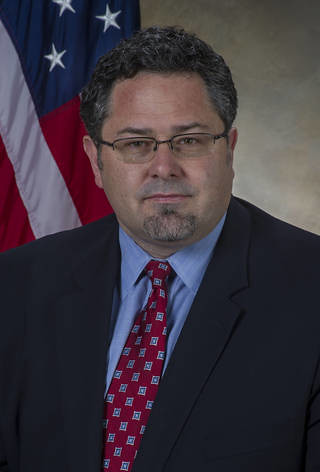Auburn engineering alumnus named deputy director of NASA’s Marshall Space Flight Center
Article body
Todd May, a 1990 alumnus of Auburn University in materials engineering, has been named deputy director of NASA's Marshall Space Flight Center in Huntsville, Alabama. He will help manage the center's nearly 6,000 civil service and contractor employees and $2.5 billion annual budget.
Since 2011, May served as manager of the Space Launch System, a new large rocket that replaces the space shuttle to take astronauts and probes into space. The rocket is one of NASA's top three priority projects, with May overseeing its development at Marshall through its in-depth critical design review in July.
Previously, May managed the agency's robotic lunar program including the successful launch of two lunar probes in 2009. He also served as deputy associate administrator in the Science Mission Directorate at NASA headquarters in Washington, D.C., as well as the deputy manager of Marshall's Science and Mission Systems Office in a dual role as associate program manager of the Constellation Program, which looks to reenergize NASA human spaceflight efforts.
May has been honored with NASA's Exceptional Achievement Medal and Leadership Medal, the Presidential Rank Award of Meritorious Executive and the John W. Hager Award for professionalism in materials engineering. In 2014, he received Aviation Week's Program Excellence Award. May was named the Distinguished Auburn Engineer by Auburn's Samuel Ginn College of Engineering in 2012 and received the college's Outstanding Auburn Engineer Award in 2010.
May and his wife, Kelly, have four children and reside in Huntsville, Alabama.
Related Media
Media interested in this story can contact Communications Director Preston Sparks at (334) 844-9999 or preston.sparks@auburn.edu.
Auburn University is a nationally ranked land grant institution recognized for its commitment to world-class scholarship, interdisciplinary research with an elite, top-tier Carnegie R1 classification, life-changing outreach with Carnegie’s Community Engagement designation and an undergraduate education experience second to none. Auburn is home to more than 30,000 students, and its faculty and research partners collaborate to develop and deliver meaningful scholarship, science and technology-based advancements that meet pressing regional, national and global needs. Auburn’s commitment to active student engagement, professional success and public/private partnership drives a growing reputation for outreach and extension that delivers broad economic, health and societal impact.





